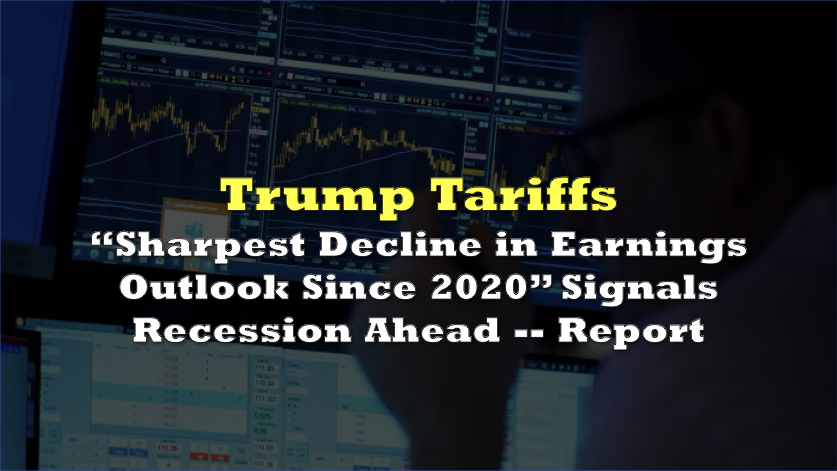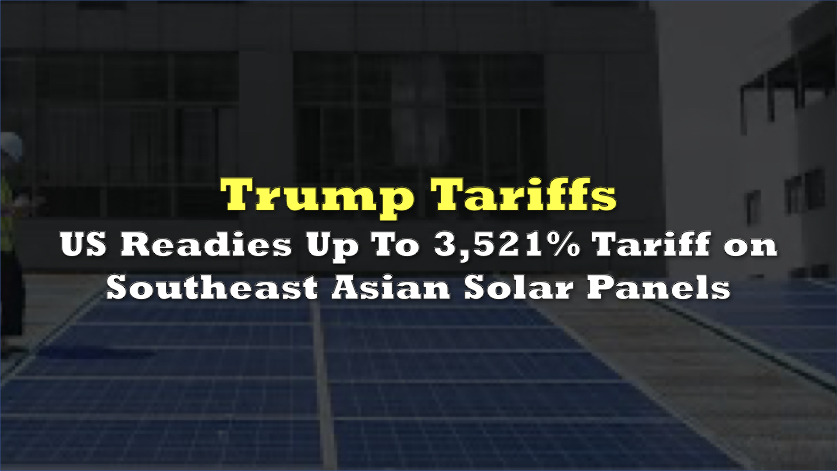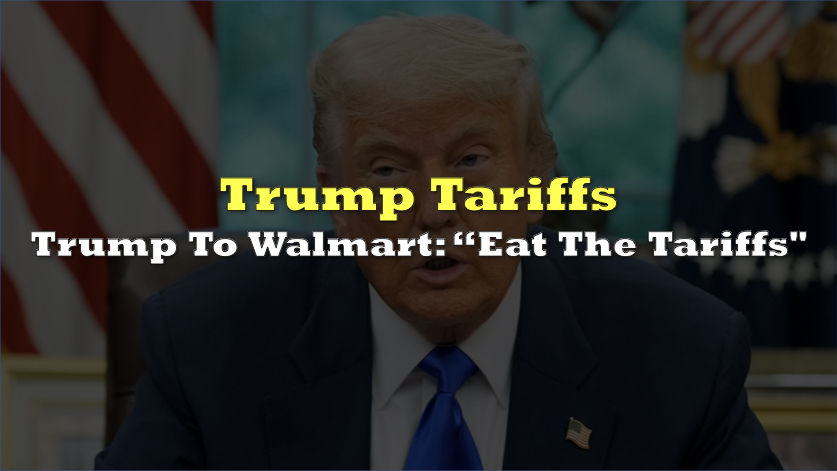The US economy is hurtling toward a stagflationary recession, according to a report by Apollo Global Management. In an analysis led by Chief Economist Torsten Slok, Apollo outlines how the imposition of tariffs has already set off a synchronized collapse across corporate earnings, consumer sentiment, capital investment, labor markets, trade flows, and credit quality.
At the core of Apollo’s warning is that the tariffs caused the sharpest collapse in S&P 500 forward earnings revisions since 2020, nearly matching the downgrades seen during the depths of the COVID-19 recession. Forward 12-month earnings expectations have plunged across a majority of S&P 500 firms, driven by rapidly falling new orders and mounting cost pressures.
Apollo shared 40 slides on how consumers and businesses are responding to tariffs
— BuccoCapital Bloke (@buccocapital) April 27, 2025
Worth the readhttps://t.co/GnYtpD32tq pic.twitter.com/mNhSyTbilF
Apollo highlights a sharp reversal in corporate capital expenditure plans, with capex indicators falling below 75 across surveys by the Philadelphia, New York, Kansas City, and Dallas Federal Reserve Banks. The decline in new manufacturing orders has entered contraction territory as of March, with further deterioration expected into April.
Meanwhile, inventories at US firms surged ahead of the tariff impact, a sign that companies were scrambling to stockpile goods before supply chains worsened.
The Logistics Managers’ Index, a key gauge of transportation and inventory trends, has also fallen dramatically, signaling declining shipping volumes and weakening business activity. CEO confidence has collapsed as well, falling to near the lowest levels since the 2008 financial crisis.
Apollo’s projections indicate that containership departures from China to US ports are already slowing significantly, and by mid-May, container traffic to American ports is expected to nearly halt. Within weeks, Apollo forecasts that trucking demand will crater, layoffs will begin across the logistics and retail sectors, and empty store shelves will emerge by early June.
Apollo just released a 40 page deck on the impact of tariffs
— Boring_Business (@BoringBiz_) April 27, 2025
Some charts that caught my eye
🧵
1/ SP500 firms with lower 12M EPS revisions as % of total revisions pic.twitter.com/FA40jE4Iym
On consumer sentiment, surveys from the University of Michigan show that consumer confidence across income groups has dropped to near record lows, regardless of household earnings. More than 60% of Americans now expect unemployment to rise over the next 12 months, the highest share recorded in decades. The share of consumers who believe business conditions will worsen within a year has also surged to over 60%, an unprecedented deterioration since the late 2000s.
Apollo also notes that the proportion of credit card holders making only minimum payments has sharply increased, alongside a rise in credit card delinquency rates. Las Vegas tourism, often a barometer for consumer discretionary health, is showing visible strain: visitor volume is declining, hotel occupancy rates are slipping, and weekly hotel revenue metrics have started to weaken.
Speaking of tourism, data from the National Travel and Tourism Office shows a double-digit year-over-year decline in international arrivals from Europe, Asia, and South America to the United States.
Apollo underscores the broader structural vulnerability of US companies to the China trade channel. According to the report, S&P 500 firms derive approximately $1.17 trillion in revenue from China — almost six times larger than the total value of US goods and services exported to China, which stands at $199 billion, and nearly eight times larger than US goods exports alone at $144 billion.
In framing the broader economic risk, Apollo makes clear that this is not a garden-variety slowdown. Rather, the tariffs are producing a stagflationary shock: inflationary pressures remain high even as real economic growth contracts. Under this scenario, Apollo anticipates a “falling S&P 500 and persistently high interest rates” environment — a toxic combination that leaves the Federal Reserve with little room for maneuver.
Apollo’s timeline predicts that by late May the combination of supply chain breakdowns, collapsing trucking activity, rising layoffs, and deteriorating consumer spending will push the economy into full-blown recession, with consequences rippling through credit markets, employment, and corporate earnings into the second half of 2025.
Information for this story was found via the sources and companies mentioned. The author has no securities or affiliations related to the organizations discussed. Not a recommendation to buy or sell. Always do additional research and consult a professional before purchasing a security. The author holds no licenses.









